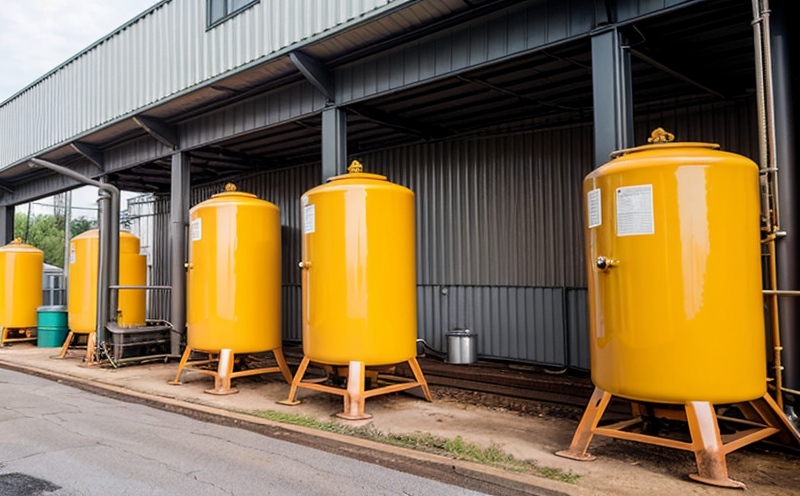ASTM D1709 Impact Resistance Compliance Testing of Films
The ASTM D1709 standard method is a critical tool in ensuring that films used across various industrial applications meet the necessary impact resistance requirements. This test evaluates the toughness and durability of plastic films by subjecting them to an impact from a falling weight. The outcome provides essential information for quality assurance, compliance, and safety in industries such as packaging, automotive, and consumer goods.
The testing procedure involves placing a film specimen between two plates. One plate is stationary while the other holds a pendulum that drops onto the film under controlled conditions. The impact energy absorbed by the film is measured, and this data helps determine whether the material complies with specified standards.
Understanding why ASTM D1709 testing is essential involves recognizing its role in ensuring product safety and reliability. In industries like manufacturing, where plastic films are used for packaging or structural components, these tests can prevent accidents caused by brittle materials that fail under stress. Compliance with ASTM D1709 helps manufacturers avoid legal issues associated with non-compliant products.
The testing process is also crucial for R&D teams who need to develop new materials or improve existing ones. By using ASTM D1709, they can quickly identify which films perform best under impact and make informed decisions about material composition. Additionally, this test ensures that films meet regulatory requirements set by various bodies such as the FDA (Food and Drug Administration) for packaging.
The significance of ASTM D1709 lies in its ability to provide a standardized approach to assessing the toughness of plastic films. This standardization is vital because it allows different labs around the world to perform consistent tests, leading to more accurate results and better overall quality control. The test helps manufacturers maintain consistency across batches or suppliers, ensuring that every product meets the same high standards.
In summary, ASTM D1709 impact resistance testing plays a crucial role in maintaining safety, compliance, and reliability in industrial manufacturing processes involving plastic films. It serves as an essential tool for quality assurance teams, R&D professionals, and procurement personnel who need to ensure that their materials are fit for purpose.
Applied Standards
| Standard | Description |
|---|---|
| ASTM D1709-23 | This standard specifies the procedure for determining the impact resistance of plastic films and sheets. It includes the dimensions, mounting methods, test conditions, and evaluation criteria. |
| ISO 6872:2010 | An international equivalent that provides similar guidelines but may vary slightly in some specifics like temperature ranges or sample size. |
The application of these standards ensures consistency and accuracy in testing across different laboratories. By adhering to ASTM D1709, manufacturers can ensure their films meet the required impact resistance thresholds, thereby enhancing product safety and regulatory compliance.
Why Choose This Test
Comprehensive Evaluation: ASTM D1709 provides a thorough assessment of how well plastic films withstand impacts. This is crucial for ensuring the durability and safety of products that may experience physical stress.
Regulatory Compliance: Many industries have specific requirements regarding material toughness, especially in areas like packaging or automotive components where impact resistance can be critical.
Quality Assurance: The test helps identify any weaknesses in the film structure early on, allowing for necessary adjustments before large-scale production begins. This proactive approach enhances overall quality and reduces costs associated with rework or scrap.
R&D Insights: For researchers developing new materials or improving existing ones, ASTM D1709 offers valuable data that can guide formulation changes based on real-world impact performance.
By choosing ASTM D1709 testing, organizations demonstrate their commitment to excellence in quality assurance and compliance. This choice ensures they are meeting the highest industry standards while also contributing positively towards public safety.
Quality and Reliability Assurance
Consistency: ASTM D1709 provides a consistent methodology for testing, which helps maintain uniform quality across different batches or suppliers. This consistency is vital for ensuring that every product meets the same high standards.
Error Reduction: By following this standardized procedure, errors in measurement and interpretation are minimized, leading to more accurate results.
The use of ASTM D1709 not only ensures compliance with regulatory requirements but also supports long-term reliability by identifying potential issues early. This proactive approach helps prevent costly recalls or accidents caused by non-compliant products.





